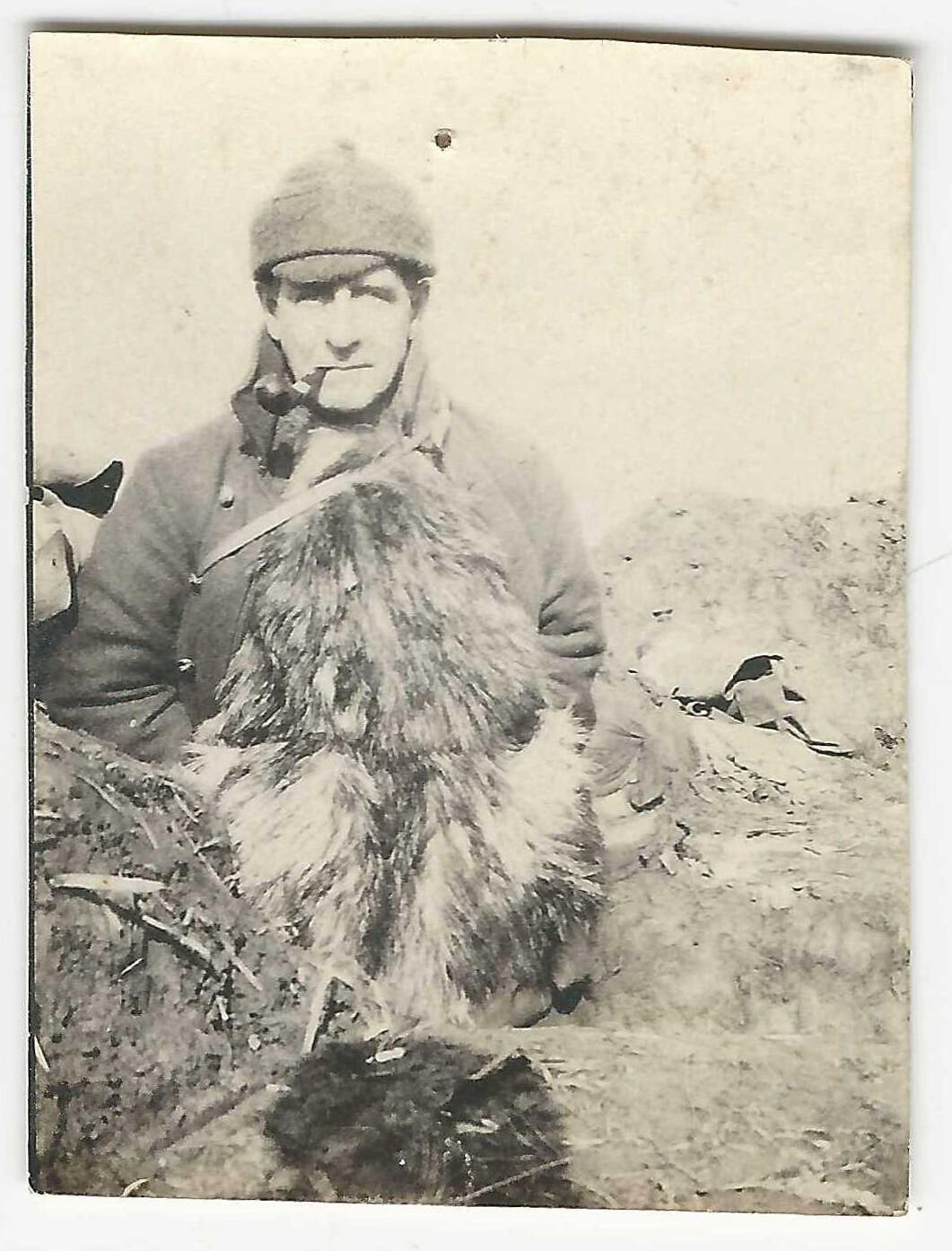Name/Title
Portrait - Captain Richard SteacieEntry/Object ID
2019x.39.07Description
A photograph of Captain Richard Steacie standing in a trench. On his front over his greatcoat, he has an animal skin, for added warmth. On his head, he is wearing a wool balaclava cap and has his usual pipe in his mouth.
He is said to be wearing a STINKER. A British army goatskin or sheepskin jerkin, that was first issued in the winter of 1914.
The term refers to the Jerkin's smell, especially when wet. In the early days of the war, it is uncertain that these furs were adequately tanned, or had been treated to "Uric acid" (Urine AKA pee).Photograph Details
Subject Person or Organization
Steacie, RichardSubject Place
* Untyped Subject Place
FranceContinent
EuropeResearch Notes
Notes
During the First World War the British Army, and to some extent the Canadian Army, experimented with the use of animal skins as warm clothing for men in the trenches during the winter of 1915. Later when animal skins (furs) were found to be impractical, leather jerkins were issued to men in the trenches as protective clothing when the weather was particularly cold and wet. Lined with a blanket material, the jerkin was comfortable and popular remaining in service throughout the Second World War, and into the 1960s
